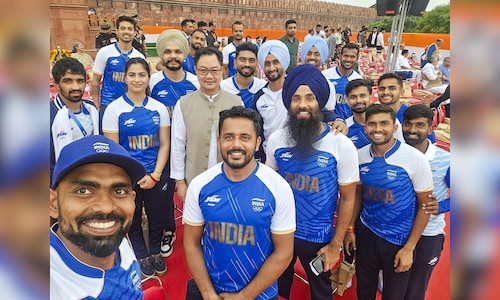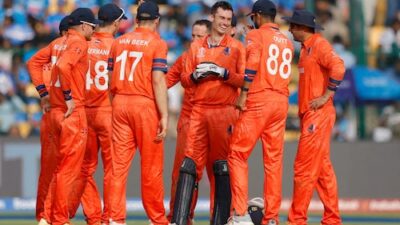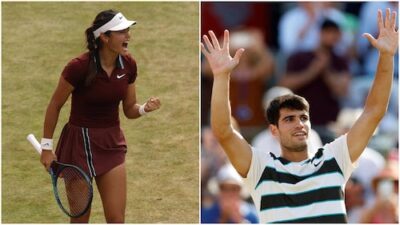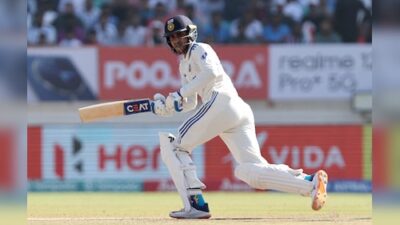In an exclusive interview with PTI, the 38-year-old three-time Lok Sabha MP from Maharashtra’s Raver constituency dismissed criticisms that India should prioritize becoming a sporting powerhouse before aiming to host the costly Olympics.
“Preparing for events like the 2036 Olympics or the 2030 Commonwealth Games involves creating world-class infrastructure, making economic investments, and establishing legacy systems that benefit athlete development,” she stated during her meeting at the office.
“Sports also serve as a means to address numerous challenges, including depression and drug addiction. Therefore, hosting an event like the Olympics acts as a unifying force socially. It fosters a movement for fitness and enhances a nation’s productivity. It’s advantageous for everyone,” explained the deputy to Union Minister Mansukh Mandaviya.
India’s bid for the Games will gain momentum next month when a delegation of officials from the sports ministry and the Indian Olympic Association travels to Lausanne for discussions with the International Olympic Committee following the submission of its letter of intent last year.
“There’s no denying that hosting the Olympics makes a statement. It symbolizes that you are a developed nation. Simultaneously, it provides the youth with the chance to step up as nation-builders.” To emphasize that hosting the Games and developing Indian sports should not be viewed separately, she referenced the World Para-Athletics Championships in Delhi later this year, which has led to the renovation of the Jawaharlal Nehru Stadium with a MondoTrack, the most advanced surface available for track events worldwide.
“We are committed to ensuring that every rupee spent has a lasting multiplier effect,” Khadse, the second woman and the youngest ever to be appointed to the sports ministry, reassured.
The 2024 Paris Olympics are projected to cost over USD 9 billion, while the upcoming 2028 Games in Los Angeles are expected to require over USD 7 billion. Typically, the final expenses surpass budget estimates significantly. The 2016 Rio Summer Games remain the most expensive to date, costing USD 23.6 billion.
NSFs aligning with Ministry’s vision
This ambitious Olympic bid will also necessitate a collaborative administrative structure, but India’s National Sports Federations (NSFs) have historically been plagued by internal conflicts, leading to legal disputes that hinder athletes’ prospects.
Khadse stated that the ministry is emphasizing accountability while maintaining the autonomy of administrators to promote better coordination.
“Politics should not interfere; athletes must be the focal point, and their growth should be our priority. Federations should have their autonomy, but harmony between NSFs and the ministry is crucial,” she asserted.
“Achieving this is vital as we aim to host the 2036 Olympics. A cohesive approach is needed; the ministry, NSFs, and the IOA must work towards a shared objective,” she added.
Differences have arisen between the ministry and the IOA regarding autonomy. IOA President P T Usha has indicated that proposals for a regulatory body to supervise NSF operations, as outlined in the draft sports bill, would undermine the IOA and be regarded as government interference by the IOC.
“Mansukh bhai has engaged with all NSFs to understand their challenges and concerns. We are also working to minimize litigation to prevent administrative stagnation. Our goal is to ensure that athletes receive the best. The ministry is guiding the NSFs towards this objective, and they are responding positively,” she noted.
Awareness key to tackling doping
Another pressing issue for Indian sports is the challenge of doping. The country continues to rank high on the global list of dope offenders and has struggled to address this issue despite heightened awareness.
Khadse stated that while she supports penalizing those who promote doping among minors, criminalizing the act is not advisable.
“While elite athletes are likely aware of doping issues, those at a junior level may not fully understand the consequences. Often, they procure substances unwittingly or based on coaches’ advice,” she explained.
“The recently amended National Anti-Doping Act, 2022 empowers the National Anti-Doping Agency (NADA) with legal authority and investigative capabilities akin to law enforcement agencies.
“We aim to implement Compulsory Anti-Doping Education for athletes, coaches, and parents, alongside randomized testing at State and Junior Levels. Those who provide drugs or facilitate doping to minors should face penalties under strict laws,” she concluded.



